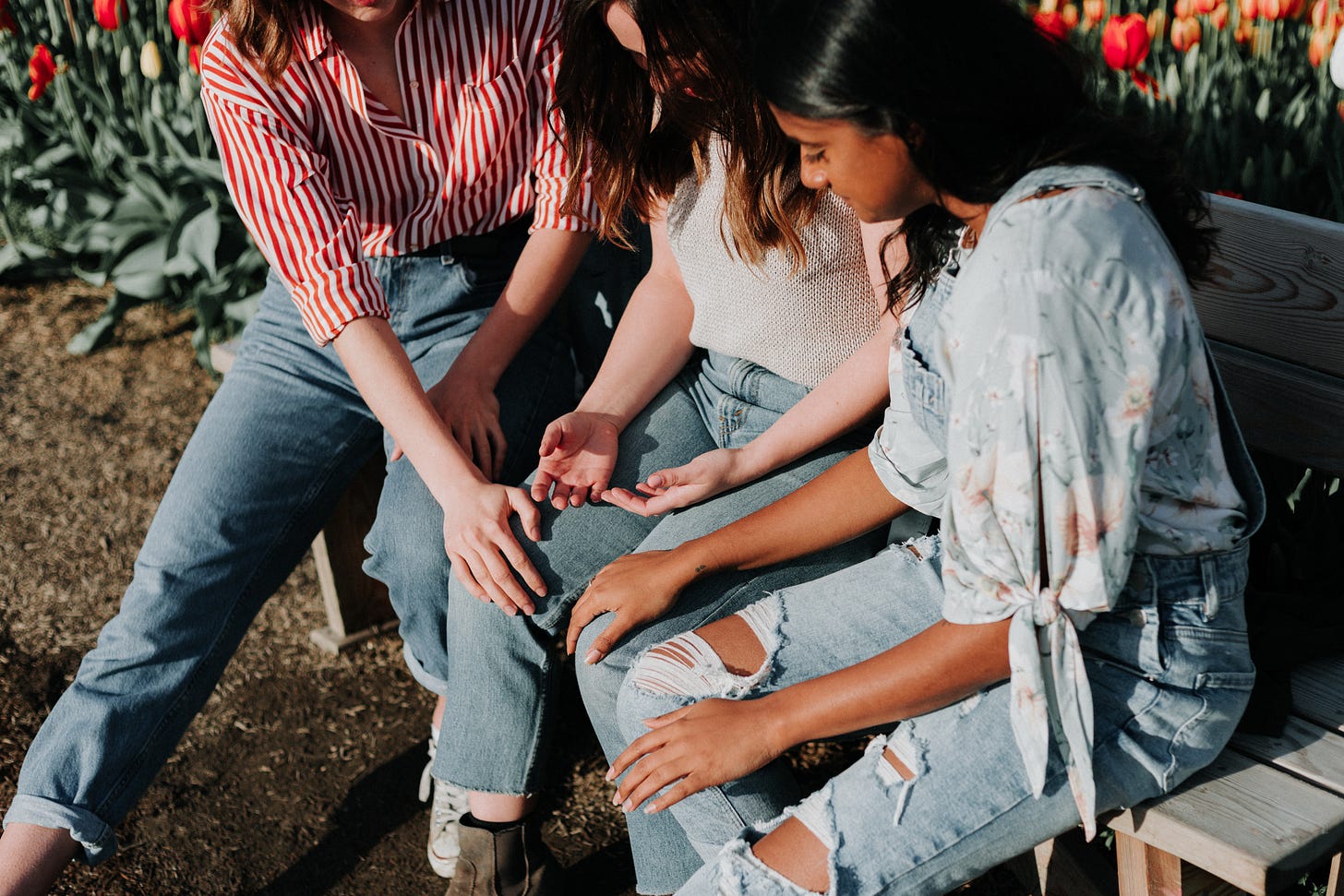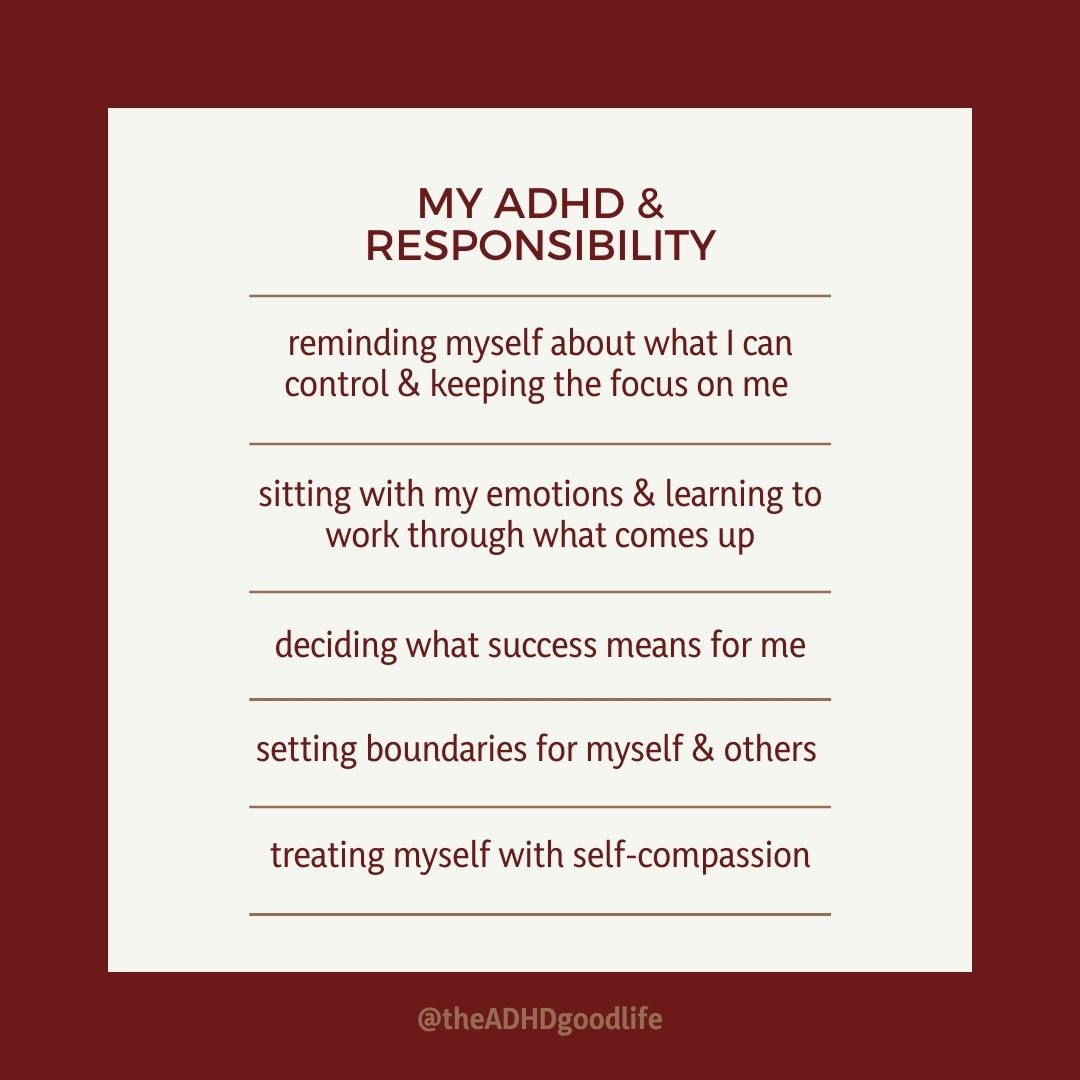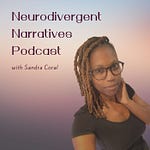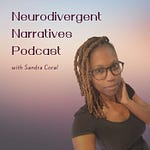
Photo by Priscilla Du Preez on Unsplash
Blame keeps me stuck.
It isn't a very empowering emotion. When I'm blaming others it leaves me waiting for others to fix my problem, rather than fixing it myself. If I blame myself, most of the time I end up doing nothing but ruminating on what I’ve done. Blame often leaves me powerless, unable to see any control that I have in a situation or in my life.
And that’s exactly where white suprematist culture wants me to be.
Without taking responsibility, I won’t do anything but continue to sit in the belief taught to me that I am the problem. That everyone and everything around me is fine, it’s just me that can’t keep it together. Blame keeps me believing that something is wrong with me and I can’t change it because I can't do/be like everyone else.
That it’s all my fault.
As ADHDers we’ve spent our lives being blamed, criticised and corrected, for all the ways we’re different from society’s expectations. Then rarely given the chance to use our strengths or knowledge in making things right either. Instead, we were shamed into changing so we can fit into a system that wants us to “succeed” as individuals, but will weaponise our individuality against us the moment we make a mistake.
Or when we’re seen as too different from everyone else.
Taking responsibility to make changes in our lives is scary in this culture, and when managing overlapping oppressions, it’s often downright dangerous. When we see that who we are isn’t represented accurately or at all in this society, we learn how we’ll be accepted in our differences. For many marginalised people we’re wrong just by existing and we’ve been taught that all our whole lives. Fears of being ridiculed, punished or rejected for our differences are conditioned in us from a young age, and the need to hide, do what we’re told, or just accept how we’re treated comes from a need for safety.
We’re blamed so much we learn to stop trusting ourselves and the power that comes from self-awareness. We’re constantly betraying ourselves in the attempts to meet the expectations set for us by others. Then we’re blamed for not reaching them, even though they were never realistic or ever considered what we wanted or needed in the first place.
Gaining any sense of control in my life started the day I decided to take responsibility for it. When I decided that maybe I played a role in the chaos, it made me realise that I needed to take action. This meant coming to terms with the fact that maybe there were some things about me that I hadn’t faced before. It meant learning to sit with the discomfort and know that making changes would always start with me. If I wasn’t prepared to sit with my emotions and hear what I was saying to myself, then I would never know myself and what I wanted. Denying that my life was a mess so I could try to fit in was destroying me. What I had gained in trying to meet societal expectations rather than taking responsibility to create a life that truly worked for me, wasn’t worth all I had lost.
That’s what finally led me to get diagnosed with ADHD at age 40.

I couldn’t wait for anyone else to take responsibility for my life. Letting go of the blame meant learning to give me some self-compassion. Whatever I had done or not, it was the best I could with what I knew at that time. But maybe there were other choices I needed to make now, and that was OK because I am only human.
If my inaction participated in the mess that was around me, maybe my actions could create change too.
White supremacist culture is seeped in blaming ourselves and each other, with the aim of disempowering ourselves. It keeps us believing that who we are is the problem. It uses blame in order to deflect the real problems that lie within this system that continues to oppress those who are different and don’t meet its expectations.
Blame serves as the reminder of all the things we’re not (but should be), and how the only change we should be making are ones that get us closer to what society expects us to be.
Deciding to take responsibility for what we can in our lives, gives us our power back so we can choose another way.
Our own.










Share this post